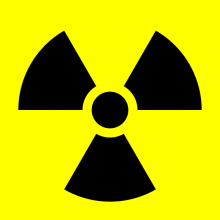Despite two rounds of talks in the past three months between the six major world powers and Iran over the latter’s nuclear program, the sides are still a long way away from reaching an agreement on a plan for resolving the nuclear dispute. The P5+1—the US, the UK, France, Russia, China and Germany—had presented Iran with a revised confidence-building proposal in February, which aims to decrease tensions and concerns until a permanent nuclear deal can be reached.
However, the latest round of discussions on April 5-6 saw no breakthrough even on the confidence-building plan. Israel was not surprised.
“This failure was predictable. Israel has already warned that the Iranians are exploiting the talks in order to play for time while making additional progress in enriching uranium for an atomic bomb,” Minister of Strategic and Intelligence Affairs and International Relations Dr. Yuval Steinitz said in a press release.
The sides in the talks were less pessimistic in their comments on the talks, although they also offered limited hope. European Union foreign policy chief Catherine Ashton said in a press release the sides “had long and intensive discussions” on the confidence-building proposal, but it “became clear” the sides “remain far apart on the substance.”
Ashton said the next step will be for the sides to discuss the talks in their home governments “to evaluate where we stand in the process.”
Iran was the most optimistic-sounding after the talks. An official response from Iranian negotiator Saeed Jalili published by the Iranian Fars News Agency said Iran believes that “some good negotiations were conducted.” Iran too had made an offer to the P5+1 and wants the world powers to take steps of their own to build confidence between the sides.
“It is now up to the 5+1 to demonstrate its willingness and sincerity to take proportionate confidence building steps,” Fars quoted Jalili as saying.
The Iranian negotiator said they had “substantive, extensive and comprehensive discussions,” while noting that “of course there is some distance between the positions of the two sides.”
The sides have long been at odds over Iran’s development of nuclear fuel. The uranium enrichment process can develop fuel for nuclear power and medical research, but when enriched further can also be used for nuclear weapons.
Iran has advanced it’s enrichment to the medical research stage, but the US and the UK have noted that Iran has made far more nuclear fuel than should be necessary for a peaceful nuclear program.
So while the P5+1 has been angling for some type of nuclear enrichment slow-down from Iran, the Iranians want the world powers to recognize their right to enrich uranium and end sanctions on Iran. So far the sides have been unable to reach an agreement acceptable to both sides.
The Israelis, for their part, have said the world powers need to genuinely threaten to use military force to stop Iran from developing nuclear weapons if necessary, as well as limit the time for talks.
“Israel believes that without a significant and tangible threat, including a short timetable, it is clear that achieving the dismantling of the nuclear project will not be possible,” said Steinitz, the Israeli government’s new point man on Iran. “The time has come for the world to take a more assertive stand and make it unequivocally clear to the Iranians that the negotiations games have run their course.”
(By Joshua Spurlock, www.themideastupdate.com, April 7, 2013)

